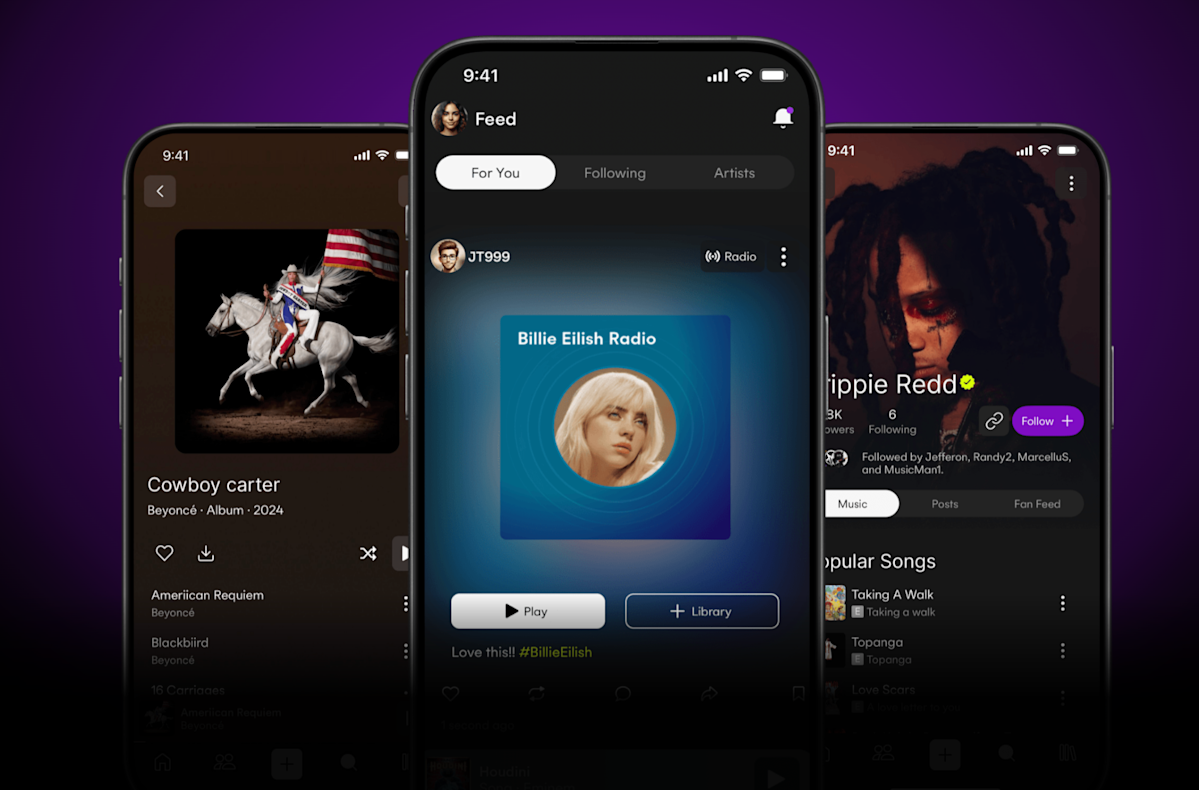At this point, the streaming music landscape feels pretty well settled. Giants like Spotify, Amazon, Apple and YouTube keep it on top, while many other players like Qobuz, Tidal, Deezer try their best to stand out from the pack. However, somewhat surprisingly a new player emerged in September. Coda Music used the recent controversy surrounding Spotify co-founder Daniel Ek as a way to distance itself from the number one streamer, and criticized Ek’s controversial funding of defense technology firm Hellsing earlier in the year. (Spotify’s refusal to stop airing ICE recruitment ads certainly hasn’t helped the platform.)
Today, the budding service is announcing a new feature that’s designed to respond to one of the recent Spotify controversies: the AI slop flooding the music platform. In response, Coda Music is launching AI detection tools aimed at finding and labeling songs that weren’t created by actual humans.
There are a few aspects to Coda’s approach. For starters, any artist added to Coda will be reviewed for AI provenance, and their profile will be labeled “AI Artist” so listeners know what they’re getting into. Coda is also giving users the ability to flag artists’ profiles if they suspect that the music is AI-generated; The company will then review them and label them if necessary.
Finally, there’s a toggle in Settings that lets you turn off AI casters completely. Obviously, how useful this setting is will depend on how good Coda is at labeling AI-generated music, but I can definitely see the appeal in turning it “off” and avoiding losslessness as much as possible.
Besides its stance on AI and the assurance that the company doesn’t “invest in war,” there are few other differentiators about Coda Music. The company says it is currently paying the “highest per-stream rates” in the industry – while at the same time, it admits that no one is paying artists enough. “The real problem is not how much is paid per stream, the problem is that streaming alone doesn’t pay enough,” the company’s website says. “And minor improvements to the fundamentally flawed per stream model won’t help.”
To this end, the company also lets users choose an “independent or qualified artist” who receives $1 of their monthly subscription fee. Sure, it’s only a dollar, but it’s something that sweetens the pot a little for musicians.
And Coda has good reason to make itself visible to users and artists alike. The final key differentiator for Coda is the company’s ambition to turn its app into a social, music-sharing feed where you get recommendations from humans rather than algorithms. To that end, users can share anything from the app to their feed, and it also allows you to share external links and photos (go ahead and post your blurry images from that NIN concert!).
The app’s home page prominently features fan-made playlists and tips for users to follow, in addition to general suggestions based on what you’re already listening to. And there’s a social tab where you can see posts from people you follow; Share songs, artists or albums; And see posts from artists you follow. That last part is important, because Coda wants artists to interact and share only with end users.
It reminds me somewhat of the Fan Groups feature that Amazon Music just announced — and with that feature, the problem Coda faces is getting people to start contributing to a new network instead of just posting things on whatever app they already use. Luckily, music fans love a community, so it will be interesting to see if this takes off.
As far as the new features for AI music reporting and filtering are concerned, Coda says they’re available in its iOS and Android apps starting today. The company doesn’t have a web interface yet, but it says it’s coming soon. If blaring out AI-generated tunes is something that catches your attention, Coda currently costs $11 per month or $17 per month for a family plan for up to four listeners.
